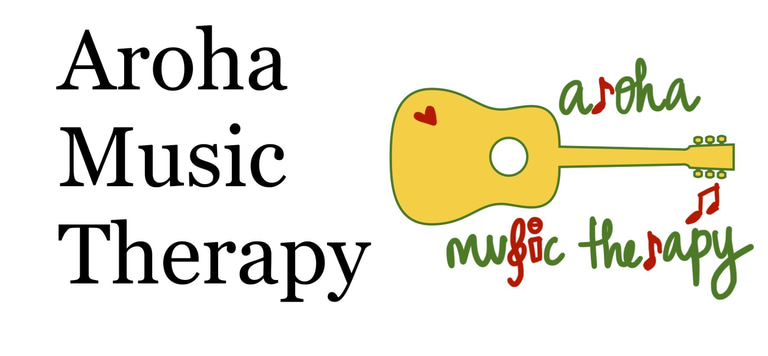The Weight of Words: How a Goodbye Song Made Me Rethink Therapy Stigma
In this post, I share an unexpected moment during a music therapy session that made me rethink the language I use with clients, especially within the context of cultural stigma surrounding therapy. A simple goodbye song led me to reflect on how subtle shifts in terminology can have a powerful impact on a child’s sense of self-worth, their connection to therapy, and how we can create a more accepting environment for growth.
6/27/20252 min read


A couple of months ago, I was wrapping up a session with a client in their home, singing our usual goodbye song. It goes, “Hey guess what, it's time to say goodbye to my friend ____/ Goodbye ______, I’ll see you next week, thanks for music therapy.” It’s a song I’ve used in sessions for years, one I learned during my undergrad at a practicum site.
That day, the client’s mom wanted to join in during the goodbye portion, and she was there when I sang the song. After I finished, she said, “Oh, that’s where he gets it from!” I was curious, so I asked her to elaborate. She explained that her son had been using the term “music therapy” when talking to extended family. She shared that she told him not to say “music therapy” around his grandparents because they wouldn’t understand, and she didn’t want him to feel bad about attending therapy. She’d started encouraging him to use terms like “music class” or “music lesson” instead.
As we talked more, I realized she wasn’t just trying to avoid confusion; she was trying to protect her son from the stigma that can come with therapy—especially in older generations. It hit me that while I’ve always been aware of the stigma around talk therapy, I hadn’t fully considered that music therapy, too, could fall under that same umbrella.
I’ve always known that therapy can be a sensitive topic in some cultures, particularly within immigrant families or communities from certain ethnic backgrounds. But I hadn’t considered that, just like talk therapy, music therapy could also be seen through a lens of shame, fear of judgment, or misunderstandings about its value. The idea that therapy might somehow reflect negatively on a person’s self-worth is a harmful stereotype that many still struggle with. And it was humbling to realize that despite my background and identity, I hadn’t thought about this impact on music therapy until that moment.
This conversation with my client’s mom made me more aware of how even the terminology we use in sessions can carry weight. It reminded me that the power of language goes beyond just its meaning—it’s also about the emotions and societal contexts attached to it. Since then, I’ve adjusted the goodbye song for this particular client, changing it to, “Goodbye _____, I’ll see you next week, thanks for music time today.”
More than just modifying a song, I’ve become committed to being more mindful of how clients and families might respond to the term “music therapy.” This experience has opened my eyes to the need for greater flexibility and sensitivity, specifically in the language I use and the impact it could have. The ultimate goal is to create an environment where my clients feel safe, valued, and free from any shame or stigma about their participation in therapy, regardless of the label.
As I reflect on this, I realize that moments like these—though subtle—are pivotal in shaping us as practitioners. They push us to think more critically about how we can improve our approach, not just for the sake of our clients, but to cultivate a broader acceptance of therapy in all its forms. My hope is that as I continue my work, I can foster a space where therapy, whether in the form of music, talk, or anything else, is viewed as a positive and empowering tool for growth.
